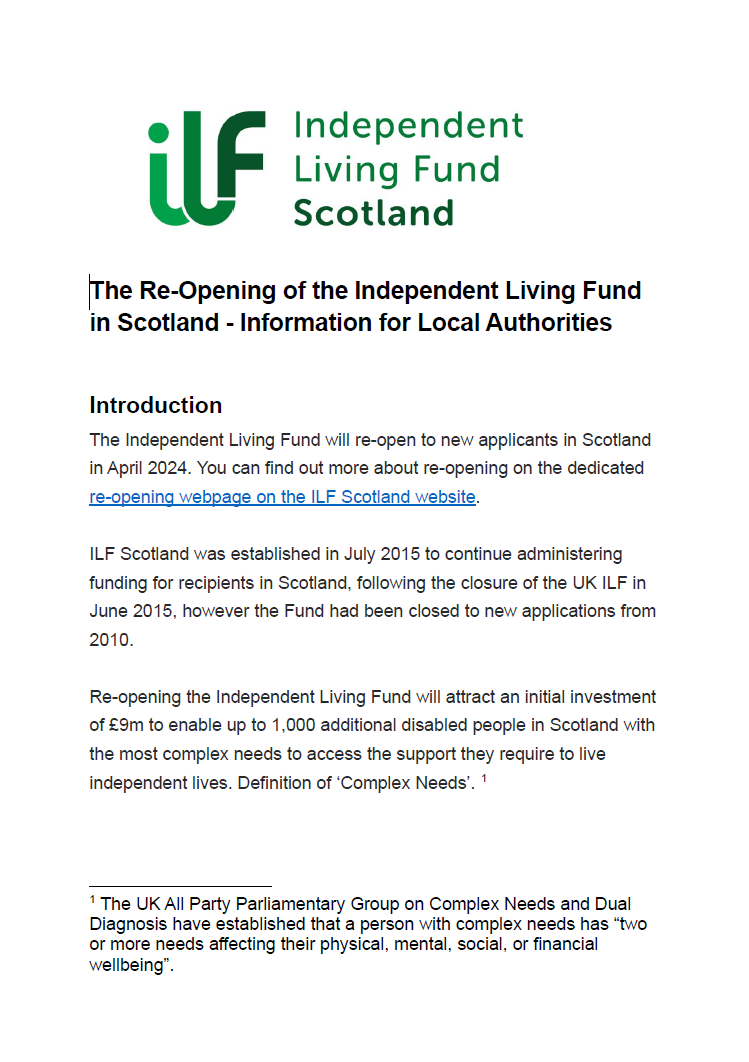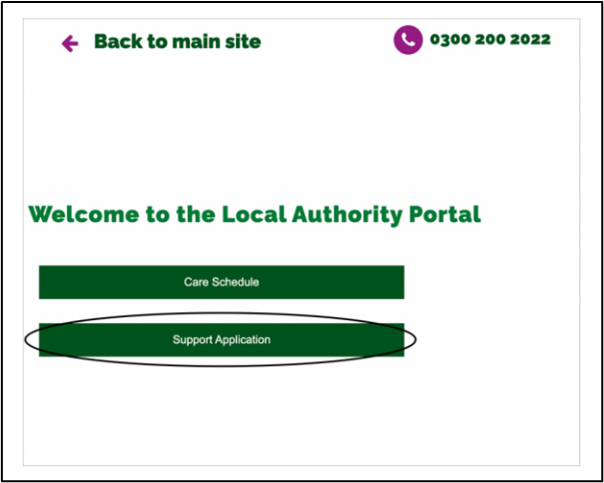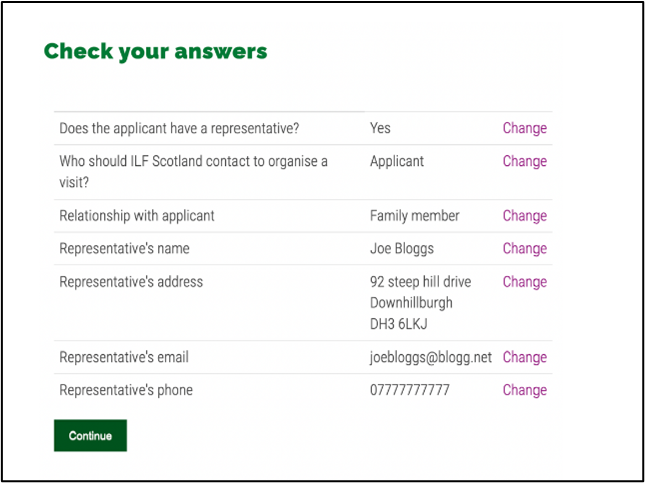
The Independent Living Fund will re-open to new applicants in Scotland in April 2024. You can find out more about re-opening on the dedicated re-opening webpage on the ILF Scotland website.
ILF Scotland was established in July 2015 to continue administering funding for recipients in Scotland, following the closure of the UK ILF in June 2015, however the Fund had been closed to new applications from 2010.
Re-opening the Independent Living Fund will attract an initial investment of £9m to enable up to 1,000 additional disabled people in Scotland with the most complex needs to access the support they require to live independent lives. Definition of ‘Complex Needs’. [1]
Applications should be made by local authority (LA) health and social care departments on behalf of potential recipients through ILF Scotland’s LA online portal. We are finalising the development and testing of our systems to ensure these operate effectively and aim to be in a position to accept online applications from all LAs by mid to end April 2024.
To ensure that the Fund is affordable in the first year, each LA area will be allocated a share of 1,000 places, with allocation proportionately based on population size and prevalence of disability in that area. The allocation per Local Authority area can be found on the ILF Scotland website.
LAs should engage directly with potential recipients prior to applying to ILF Scotland. We will direct any enquiry we receive from individuals about applying to the re-opened fund towards each LA through its preferred contact route. If you have not yet provided us with this information, please do so.
The online application screens will look like this:


ILF Scotland funding will focus primarily on those disabled people with complex support needs who have significant independent living outcomes that are not being met from their LA - those with ‘unmet needs’. As a consequence, people who have most or all or of their independent living outcomes met by their LA will not be a priority for ILF funding. This funding is not intended to support those outcomes that are the responsibility of another public body.
There is no upper limit on the LA contribution but where this already encompasses 24 x 7 support we will require a strong case to be made for there being unmet independent living outcomes.
ILF Scotland will use its professional judgment to evaluate the difference that its additional funding could make towards meeting key independent living outcomes that are currently unmet and will prioritise applications on behalf of those:
LA practitioners should indicate from the above list, those priorities that the application is intended to support.
The LA, on submitting the application, will be required to confirm that:
ILF Scotland Assessors may seek further reassurance on these aspects during a home visit arranged to assess applications and will return applications that, in their assessment, do not correspond with the guidance given here.
ILF Scotland expects a local authority practitioner to attend the visit with the ILF Assessor.
The LA contribution at the point of application will be treated as the person’s own threshold, which should be at or above £800 per week.
In order to meet our Access Principles for the reopening of ILF, a person must be in receipt of local authority services equal to or greater than £800.00. If a person does not receive services or a personalised budget of this amount, they do not meet the access principles at this time and an application cannot be submitted on their behalf.
We expect local authority funding to be maintained at the level confirmed when the local authority made the application to ILF Scotland. If a LA reduces its contribution, it must advise ILF Scotland in advance of the fact and be aware that this may place the ILF award in jeopardy. This is in line with the Joint ILF Scotland / COSLA Agreement that confirms that the local authority should provide ILF Scotland with early notification of any reassessment of need and potential adjustment to the total level of funding provided by either the local authority or ILF Scotland.
If you wish to enquire further before applying to the Fund, please speak with whoever leads on ILF in your Authority or you can contact ILF Scotland via enquiries@ILF.scot
LAs will need to ensure that a potential recipient meets the following access principles:
ILF Scotland’s existing policy framework will largely remain but will be amended where necessary to incorporate the access principles recommended by the Co-production Working Group and agreed by Ministers, set out below.
Access to the Independent Living Fund will not be linked to receipt of Disability Living Allowance, or other disability-related benefits. See Policy 14 – Qualifying Benefits for ILF Scotland Awards.
The reopened Fund will be open to applications from people aged 16 or over.
The Fund will re-open using a ‘threshold sum’ as a key access principle. The threshold sum is the value of the LA / SDS care package and has been used by ILF since 1993 as a proxy for level of need. This approach will allow the Fund to open promptly in April 2024.
The threshold sum is a minimum of £800 per week (after deduction of any LA charges). See Policy 24 - Statutory Input to ILF Scotland Funding.
The re-opened fund will not impose a capital limit on applicants. In practice, capital limits may be applied by LA partners as part of their SDS assessment process. See Policy 39 - Treatment of Capital.
The Fund will open with a maximum award of £330 per week. This is based generally on 10 to 15 hours of independent living focused support, considered meaningful in relation to the realisation of Article 19 of the UNCRPD. Awards will not always be sufficient to secure the intended outcomes but setting an affordable maximum award is essential to working within the funding provided by Scottish Ministers and thereby ensuring the sustainability of the fund. See Policy 20 - ILF Scotland Payments.
The Fund should be accessible to those who are unable to manage their own affairs. Management of awards by suitable third parties will be permitted, as in the existing Fund. Policies should emphasise supported decision making, rather than substitute decision making, where possible. LAs should not normally manage awards. See Policy 26 - Managing an ILF Scotland Award and Policy 17 - Financial Management Support and Payroll Services.
Available Income contributions (charges) will not be a feature of the re-opened Fund. Ministers have committed to removing social care charges, including ILF charges, within the lifetime of the current Parliament. See Policy 4 - Recipient Contribution.
New ILF awards must be used in ways that genuinely deliver improved independent living outcomes for recipients and must at all times be additional to locally assessed eligible need. See Policy 24 - Statutory Input to ILF Scotland Funding.
It is important for the success of the Fund that ILF Scotland and LAs work well together, because of the LA’s knowledge of their own populations, and because they hold key information that will be required for an ILF award to be approved. However, from the outset, the recipient should always be at the centre of a three-way relationship with ILF Scotland and their LA.
Please see the Joint ILF Scotland / COSLA Agreement as approved in March 2024 by COSLA’s Health and Social Care Board.
The existing ILF Scotland policy intends to maximise flexibility, choice and control for recipients while ensuring appropriate use of public funds and that entitlement to welfare benefits is not compromised. Our policy on use of funds will be maintained for new recipients. See Policy 41 - Use of ILF Scotland Funding.
You can view all of ILF Scotland Independent Living Fund policies on the ILF Scotland website.
ILF Scotland also delivers a one-off Transition Fund grant of up to £4,000 for young disabled people aged 16 to 25 years to help them become more independent and active in their communities.
Young people can apply for a Person Centred Planning Grant to help them decide what goals they want to achieve and how a Transition Fund grant might help towards this.
They can also apply for a Technology Grant to access a basic piece of IT equipment to help them get online and communicate and participate with their peers and others.
If both sets of access principles fully apply, a person could access both Funds.
[1] The UK All Party Parliamentary Group on Complex Needs and Dual Diagnosis have established that a person with complex needs has “two or more needs affecting their physical, mental, social, or financial wellbeing”.